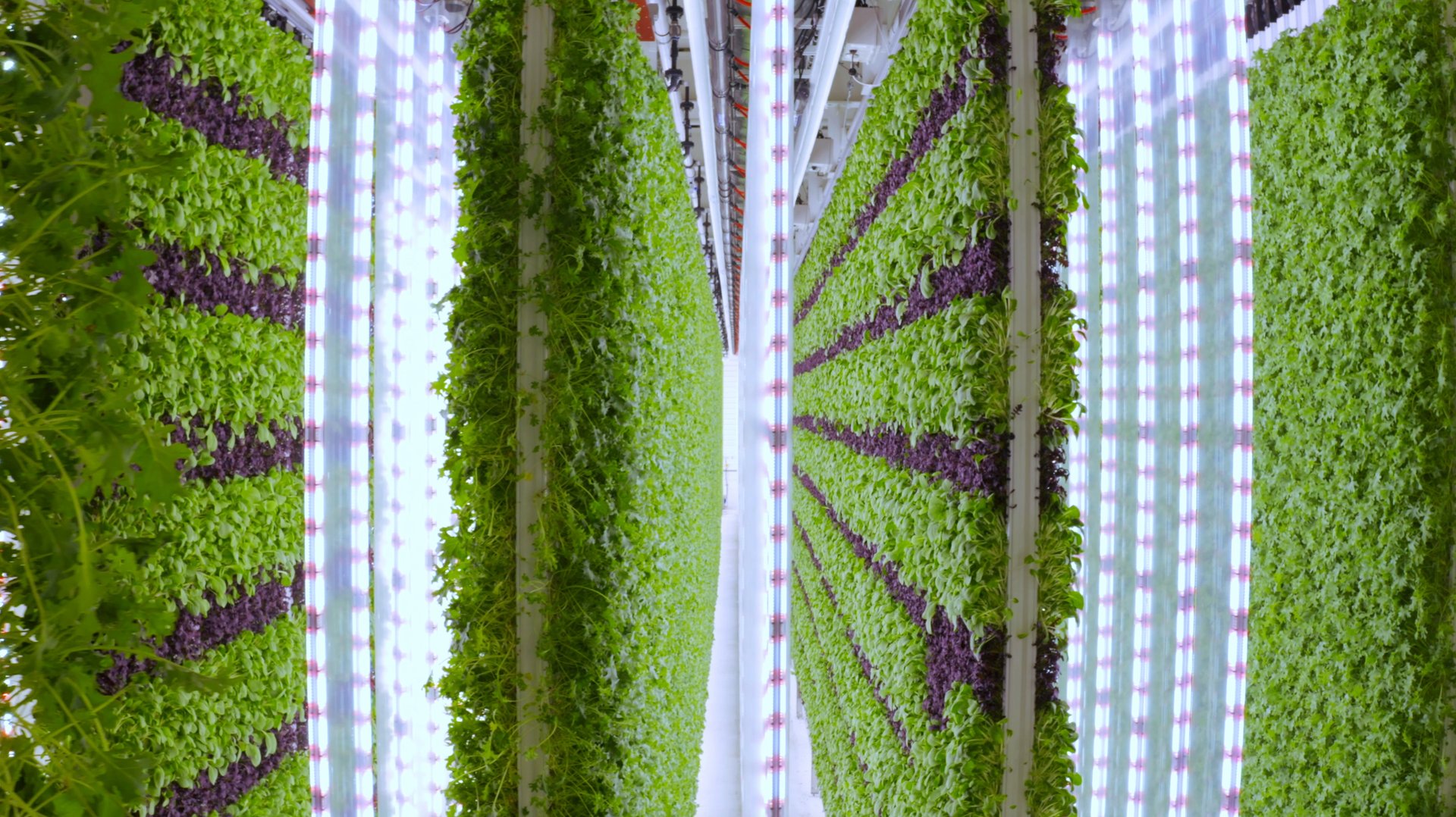Why Walmart is investing in vertical farming
Walmart wants to bring the farm closer to the store.


Walmart wants to bring the farm closer to the store.
The retail giant said today that it is investing in Plenty, an indoor vertical farming company, and will sell leafy greens from Plenty in its 280 California stores later this year. Some greens, which will come from Plenty’s new vertical farm in Los Angeles, will be sold under the startup’s brands, and others will be sold under Walmart’s private labels.
Walmart did not disclose the size of the investment or the terms of the deal. But, as part of the investment, Walmart will take seats on Plenty’s board of directors once the deal closes.
Plenty, which is valued at close to $1 billion, operates an indoor vertical farm that grows produce like kale, arugula, and lettuce without pesticides. Headquartered in South San Francisco, Plenty’s products are sold by Albertsons stores and delivered by Instacart and Amazon Fresh.
Vertical farming helps Walmart meet its sustainability goals
Walmart, which pledged to meet a slew of sustainability targets such as becoming a net zero emissions global business by 2040, said vertical farming does not replace traditional farming methods. Instead, the practice will help increase the food supply in a sustainable way, according to its press release.
Vertical farming, which cultivates crops literally on vertical structures indoors, uses less space and water than traditional farms, according to a Morgan Stanley report on the future of food. The market is expected to grow 25% annually over the next decade, but it may also be limited to “high-value” crops, or produce that commands high prices, such as leafy greens and strawberries.
Over the past four years, Walmart has met with different vertical farming companies to learn about their methods, Martin Mundo, senior vice president of product merchandising in the US Walmart, told CNBC. Walmart sees this approach as a way to ensure a reliable supply of food all year long, he said.
With extreme weather changes affecting global supply chains, there’s been increased investment in agricultural technology to make food supply chains more resilient. Globally, funding for so-called agtech companies reached a record-high of $3.2 billion as of Sept. 30, 2021, according to PitchBook, a research firm. The competitors in the vertical farming space include AeroFarms, which is based in New Jersey, and Bowery Farming, which is located in New York.
Super markets are investing more in growing their own products
Walmart is not the first retailer to invest in alternative farming. In 2019, Kroger installed vertical farms from Infarm, a German startup, in two Seattle stores. The seedlings spend the first few days at Infarm’s centralized nursery, and the rest of the growing happens on-site at the grocery stores. A year later, Publix partnered with local hydroponics company Brick Street Farms, to add a 40-foot hydroponic farm in a parking lot outside its store in Lakeland, Florida, where Publix is headquartered. Each week, the farm produces about 720 heads of lettuce, which are all sold in the store.
While vertical farming may strengthen food supply chains it also takes time to grow the product consistently, Curt Epperson, a business development director at Publix, told Greenbiz in 2020. To get significant business and sustainability impacts from vertical farming, vertical farms will need to get large enough to scale. Walmart, with its 10,500 stores globally and $500 billion in annual revenue, may be able to help.